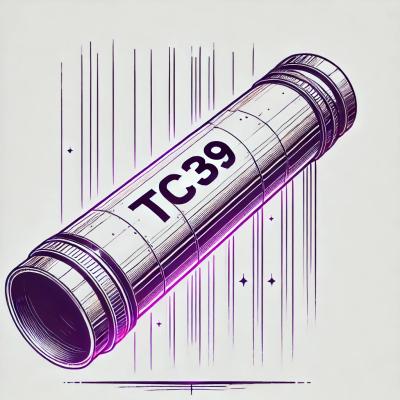
Security News
Safari 18.4 Ships 3 New JavaScript Features from the TC39 Pipeline
Safari 18.4 adds support for Iterator Helpers and two other TC39 JavaScript features, bringing full cross-browser coverage to key parts of the ECMAScript spec.
browser-env
Advanced tools

Simulates a global browser environment using
jsdom.
Previously named node-browser-environment.
This allows you to run browser modules in Node.js 4 or newer with minimal or no effort. Can also be used to test browser modules with any Node.js test framework. Please note, only the DOM is simulated, if you want to run a module that requires more advanced browser features (like localStorage), you'll need to polyfill that seperately.
❗️Important note
This module adds properties from the
jsdomwindow namespace to the Node.js global namespace. This is explicitly recommended against byjsdom. There may be scenarios where this is ok for your use case but please read through the linked wiki page and make sure you understand the caveats.
npm install --save browser-env
Or if you're just using for testing you'll probably want:
npm install --save-dev browser-env
// Init
require('browser-env')();
// Now you have access to a browser like environment in Node.js:
typeof window;
// 'object'
typeof document;
// 'object'
var div = document.createElement('div');
// HTMLDivElement
div instanceof HTMLElement
// true
By default everything in the jsdom window namespace is tacked on to the Node.js global namespace (excluding existing Node.js properties e.g console, setTimout). If you want to trim this down you can pass an array of required properties:
// Init
require('browser-env')(['window']);
typeof window;
// 'object'
typeof document;
// 'undefined'
You can also pass a config object straight through to jsdom. This can be done with or without specifying required properties.
require('browser-env')(['window'], { userAgent: 'My User Agent' });
// or
require('browser-env')({ userAgent: 'My User Agent' });
You can of course also assign to a function:
var browserEnv = require('browser-env');
browserEnv();
// or
import browserEnv from 'browser-env';
browserEnv();
MIT © Luke Childs
FAQs
Simulates a global browser environment using jsdom
We found that browser-env demonstrated a not healthy version release cadence and project activity because the last version was released a year ago. It has 1 open source maintainer collaborating on the project.
Did you know?

Socket for GitHub automatically highlights issues in each pull request and monitors the health of all your open source dependencies. Discover the contents of your packages and block harmful activity before you install or update your dependencies.

Security News
Safari 18.4 adds support for Iterator Helpers and two other TC39 JavaScript features, bringing full cross-browser coverage to key parts of the ECMAScript spec.

Research
Security News
The Socket Research Team investigates a malicious Python package that enables automated credit card fraud on WooCommerce stores by abusing real checkout and payment flows.

Security News
Python has adopted a standardized lock file format to improve reproducibility, security, and tool interoperability across the packaging ecosystem.